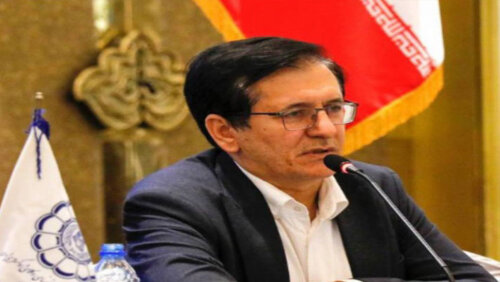Best Native People Lawyers in Shiraz
Share your needs with us, get contacted by law firms.
Free. Takes 2 min.
List of the best lawyers in Shiraz, Iran
About Native People Law in Shiraz, Iran
Shiraz, a city located in south-central Iran, is rich in history and cultural diversity. While predominantly Persian, the city and its surroundings are home to various ethnic groups, including the Qashqai, an indigenous nomadic tribe with a distinct cultural heritage. Native people law in Shiraz encompasses a broad spectrum of legal issues related to these ethnic minorities, focusing on preserving their unique cultural identities while ensuring their rights within the broader Iranian legal framework.
Why You May Need a Lawyer
There are several situations where individuals from native groups in Shiraz may seek legal assistance. These include land disputes involving traditional territories, cultural rights issues such as the protection of languages and customs, and cases involving access to public services like education and healthcare. A lawyer can help navigate the complexities of Iranian law, ensuring that the rights and interests of native individuals and communities are represented and upheld.
Local Laws Overview
In Shiraz, Iranian laws applicable to native people are often influenced by a combination of constitutional provisions and local regulations. The Iranian constitution recognizes ethnic diversity and guarantees certain cultural rights. However, the implementation of these rights can be inconsistent. Key legal areas of interest include the right to use one’s language, preserving cultural heritage sites, and the regulations governing the traditional lifestyle of nomadic tribes like the Qashqai. Understanding these laws is crucial for native groups seeking to affirm their rights.
Frequently Asked Questions
Who are the native groups in Shiraz?
The primary native group in Shiraz is the Qashqai, a Turkic-speaking nomadic tribe known for their rich cultural traditions and lifestyle, which includes seasonal migration.
What rights do native people have under Iranian law?
Native people have the right to maintain and promote their culture and language. The Iranian constitution supports cultural diversity, although enforcement may vary.
How can native individuals resolve land disputes?
Legal resolution of land disputes often requires formal claims supported by historical evidence of land use. Legal advice and representation can be crucial in these cases.
Are there laws protecting the cultural heritage of native people in Shiraz?
Yes, Iranian law provides for the protection of cultural heritage sites, but the practical application of these laws can be challenging, necessitating legal assistance for effective enforcement.
What is the role of a lawyer in protecting native language rights?
A lawyer can advocate for educational and broadcasting initiatives in native languages and help navigate legal channels to support language preservation.
How do native people access healthcare and education?
Access can vary based on geographic and economic factors. Legal advisors can help address barriers to accessing these essential services.
What legal remedies are available for discrimination against native individuals?
Iranian law prohibits discrimination, and individuals facing discrimination can seek legal redress through local courts with the aid of a lawyer.
Can native people in Shiraz participate in local governance?
While native people can participate in governance, they may face systemic challenges. Legal advice can help navigate the complexities of political participation.
Are there legal protections for native artisans and cultural practitioners?
There are some protections, but enforcement is inconsistent. Legal assistance can ensure intellectual property rights and cultural practices are respected and safeguarded.
Is it possible to form native cultural organizations in Shiraz?
Yes, but forming such organizations involves navigating regulatory frameworks where legal guidance can be invaluable to compliance and successful establishment.
Additional Resources
A number of resources in Shiraz can provide assistance to native people seeking legal advice. Some governmental bodies focus on cultural affairs and minority rights. Universities and cultural institutions might have departments dedicated to ethnological studies that offer insights and advocacy. It's also beneficial to engage with local non-governmental organizations (NGOs) focused on cultural preservation and human rights.
Next Steps
If you need legal assistance involving issues related to native people in Shiraz, the first step is to consult a local lawyer specializing in ethnic and cultural rights. They can provide expert advice tailored to your specific situation. Additionally, maintaining documentation of your claims and any communications concerning legal matters will be crucial in building a successful case. For more structured support, reach out to local cultural organizations or governmental bodies that focus on minority issues.
Lawzana helps you find the best lawyers and law firms in Shiraz through a curated and pre-screened list of qualified legal professionals. Our platform offers rankings and detailed profiles of attorneys and law firms, allowing you to compare based on practice areas, including Native People, experience, and client feedback.
Each profile includes a description of the firm's areas of practice, client reviews, team members and partners, year of establishment, spoken languages, office locations, contact information, social media presence, and any published articles or resources. Most firms on our platform speak English and are experienced in both local and international legal matters.
Get a quote from top-rated law firms in Shiraz, Iran — quickly, securely, and without unnecessary hassle.
Disclaimer:
The information provided on this page is for general informational purposes only and does not constitute legal advice. While we strive to ensure the accuracy and relevance of the content, legal information may change over time, and interpretations of the law can vary. You should always consult with a qualified legal professional for advice specific to your situation.
We disclaim all liability for actions taken or not taken based on the content of this page. If you believe any information is incorrect or outdated, please contact us, and we will review and update it where appropriate.









